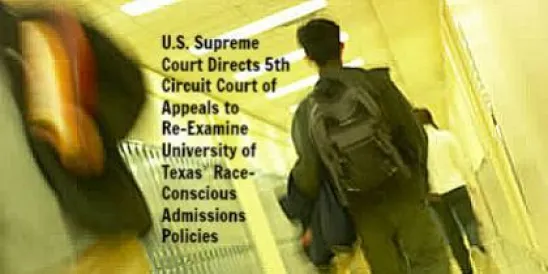The school shooting in Parkland, Florida, which left 17 students and staff dead, has rocked schools across the nation. As many school districts grapple with the aftermath, students, staff, and community members seek action. It has also spurned a number of local, state, and nationwide movements. Many of these movements are memorial in nature, remembering the lives lost to school violence; others are calls to action, protests, and marches.
Known Planned Events
-
March 14, 2018 – #ENOUGH National School Walkout – At 10 a.m., teachers, students, administrators, parents, and allies have been encouraged to "walk out" for a period of 17 minutes in remembrance of every person killed in Parkland at the Marjory Stoneman Douglas High School.
-
March 24, 2018 – March For Our Lives – A march in Washington, D.C. to call for school safety and gun control; others across the country are encouraged to march in protest.
-
April 20, 2018 – #NationalSchoolWalkout – the 19th Anniversary of Columbine – There are mixed messages on social media – some asking for students to attend school and then promptly walk out and "sit outside and peacefully protest, make some noise, voice your thoughts," and then other sites recommend that students "don't attend school, wear orange and protest."
Districts that are aware of these events must strike a balance between student and staff safety and security; constitutional rights of students and staff; compassion and remembrance of the lives lost to school violence; and the business of education of the school's students. We provide some general considerations as you navigate this increasingly more familiar territory of school safety and individual rights.
Legal and Practical Considerations
- What Message Should a District Send? Consider whether it is prudent for administration and or the board of education to sanction an event, whether it be a walk out, assembly, or gathering in recognition of the lives lost in Parkland and other instances of school violence. It is important to remember that the District is responsible for providing an appropriate educational environment and, to the extent possible, should determine what activities will be considered as furthering the educational mission.
- How Should a District Respond to Staff and Student Requests to Participate? In the absence of a school-sanctioned event, consider whether the most practical approach to participation requests is standard application of attendance policies.
- How Should a District Respond to Student/Staff Absences? Again, in the absence of a school-sanctioned event, consider whether the most practical approach is application of a district's current policies and procedures for absences. Students and staff, alike, should be held to a district's standard policies, which should be consistently applied. Consider whether honoring parental permission to excuse their child to protest will create an additional area on district property to supervise since it is doubtful that such parents will be able to pick up their child or be present to supervise. Additional supervision may become necessary.
- Are We Required to Allow Community Member Participation? School boards have broad authority to regulate the presence of community members in school buildings and many districts have policies in place regarding admission of third parties in and about school premises. A district should consider the appropriateness of community member involvement during the school day, while ensuring consistency with established policy.
- Should the Presence of Additional Law Enforcement or Other Security Measures Be Considered? Of course, whether or not to engage additional law enforcement is a decision that should be made based on the facts of a particular situation. However, given that some of these events may draw large numbers of individuals, whether it be students and staff or requests by members of the community, additional safety precautions would be prudent.
As these and other grass roots movements take shape, districts must be mindful of the balance between school safety and security and legally-protected individual rights. If you have questions surrounding the particular circumstances facing your district, the application of existing policy or even the creation of new policy, you are encouraged to seek legal counsel to ensure that all rights are appropriately identified and preserved.



 />i
/>i

